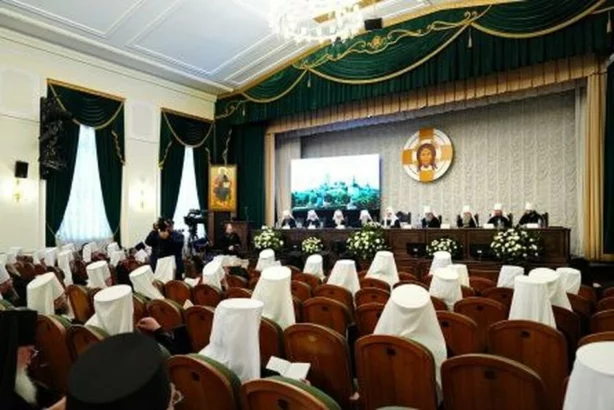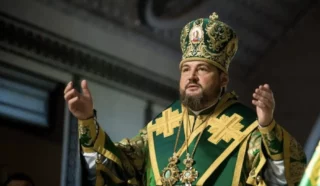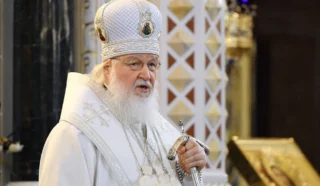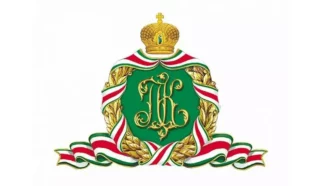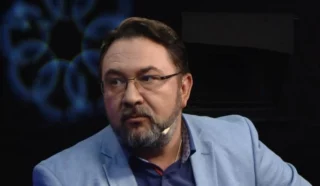The bishops’ meeting of the Russian Orthodox Church is over. Whether the thoughts expressed at it will be continued in the decisions of subsequent meetings of the Synod or Councils remains to be seen. None of the published “insights” has yet been confirmed, although we initially wrote that the format and functions of this event were not fully understood. As it turned out, the meeting is declarative in nature. The main leitmotif of the Bishops’ meeting was the report of Patriarch Kirill. Let us pay attention to the most important points and try to comment on them “from our bell tower”.
First. A new front of confrontation with the Patriarchate of Constantinople has been opened. This was predictable, especially given the fact that a détente between the two Churches was not even remotely on the horizon. The Russian Orthodox Church argued its position with the canons of the Church, compiling a whole report on the subject.
It is worth noting that no creation of exarchates or other associations on the canonical territory of the Phanar has yet been announced. In principle, given the format of the event and the absence of any starting grounds for such a step, this is not surprising. For example, when the African Exarchate was established, the main argument was the appeal of the clerics of the Patriarchate of Alexandria with a corresponding request. The clerics of the Patriarchate of Constantinople, given their ethnicity, are unlikely to take such a step, even if one wanted to.
Second. An unexpected attack also came against the Greek Catholics. They were directly accused of inciting religious hatred and directly assisting in the fight against the UOC. This is extremely interesting, especially given the constant search for ways of interaction between the ROC and the Vatican. Since the UGCC is in direct subordination to the Pope, the Vatican cannot ignore this. In fact, by accusing the Uniates of persecuting Orthodoxy in Ukraine, the leading role of the ROC was recognized in these processes. Time will tell whether there will be a response from the Vatican.
Third. The Ukrainian issue was still one of the most important. Let us conditionally divide it into two parts – the stick and the carrot. By the stick, of course, we mean the Patriarch’s statement on the cessation of the commemoration of his name during Divine Services in the parishes of the Ukrainian Orthodox Church. His Holiness stated very unequivocally that such a practice is unacceptable and actually finds those who do so in a state of “slipping into schism”. Moreover, the patriarch noted that if somewhere in Ukraine there are still churches where the Patriarch of Moscow continues to be remembered during Divine Services, then it is preferable to receive the Sacraments in such places. If there are no such places, then it is possible to receive Holy Communion in “non-remembering” churches, but with the disclosure that the Sacraments there will be valid until there is a cathedral assessment of such practice. That is, as long as the refusal to remember is not officially and at the cathedral level labeled a schism, it cannot be considered as such.
It should be noted that the refusal to commemorate the Patriarch of Moscow during Divine Services in the churches of the UOC was officially approved at the Council of the Ukrainian Orthodox Church in Theophany on May 27, 2022. Consequently, with such theses from his report, the Patriarch makes it clear that the decisions of this Council are not considered legitimate. Moreover, after the end of the war we are expected to “showdown” with the appointment of those responsible for these decisions.
Thus the UOC was put in a state of twine. Either the Church returns to the commemoration of the Patriarch, but loses everything that it still has “on the balance sheet”. Or it remains as it is, but at the risk of falling out of the canonical field from the point of view of the Cyriarchal Church.
At the same time, as a “carrot”, the Ukrainian Orthodox Church was praised for its steadfastness during the persecution. The confessional feat of Metropolitan Pavel, who is imprisoned, was separately noted.
To be fair, it should be noted that many representatives of the UOC, the patriarchal theses with regard to certain points will cause double feelings. Whether the UOC will formulate its position on these points is difficult to say. Nevertheless, at unofficial levels, the reaction will not be long in coming.
